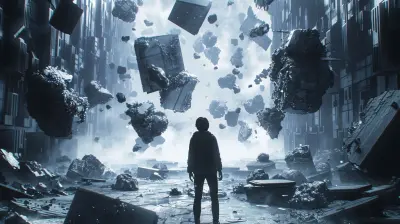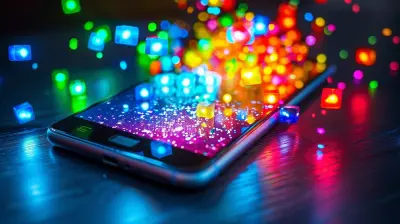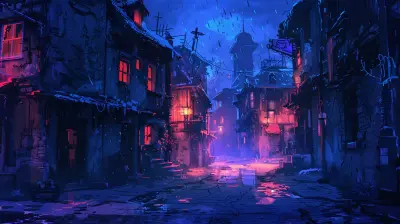The Rise of Anti-Heroes in Modern Gaming
30 August 2025
Let’s be real—video games aren't what they used to be. Gone are the days when our heroes were perfect: morally upright, honor-bound, and squeaky clean. These days, we gravitate toward a different kind of character—the flawed, brooding, and often morally ambiguous anti-hero. You know the type. They’re not saving the world because it’s the "right" thing to do. They’re doing it for revenge, guilt, or just because they’re the only one left standing. And we love them for it.
So, why are anti-heroes stealing the spotlight in modern gaming? Grab your favorite controller and let’s dive into this fascinating shift in gaming narratives.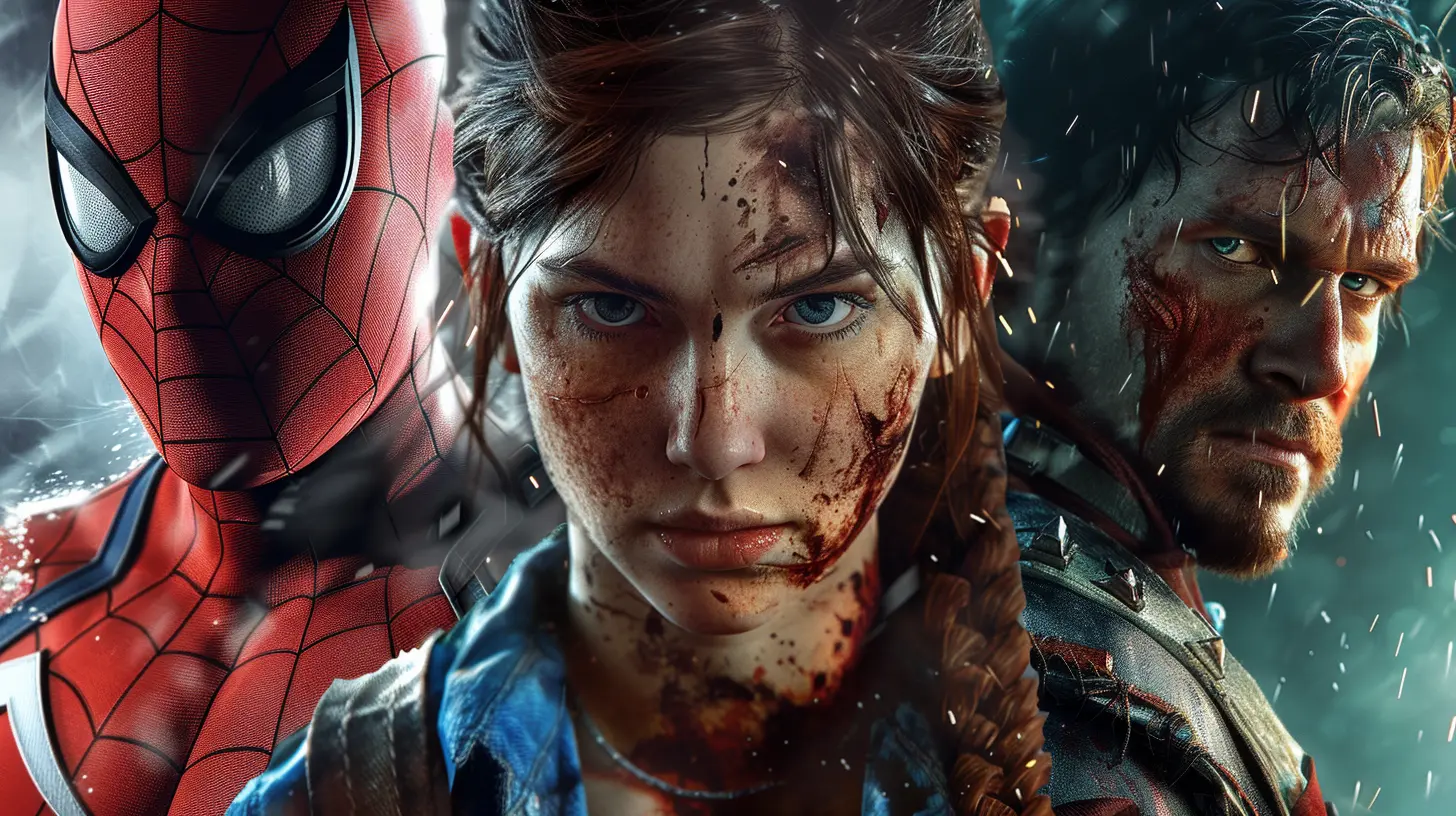
What Exactly Is an Anti-Hero?
Before we get too deep, let’s get on the same page. An anti-hero is a protagonist who lacks traditional heroic qualities like selflessness, idealism, or morality. They’re often violent, selfish, jaded—or all of the above. Basically, they’re the polar opposite of your typical role model. But here’s the kicker: despite all that, we’re rooting for them.Think characters like Kratos from God of War, Arthur Morgan from Red Dead Redemption 2, or Ellie from The Last of Us Part II. They’re not perfect. In fact, they’re far from it. Yet, their depth and complexity make them unforgettable.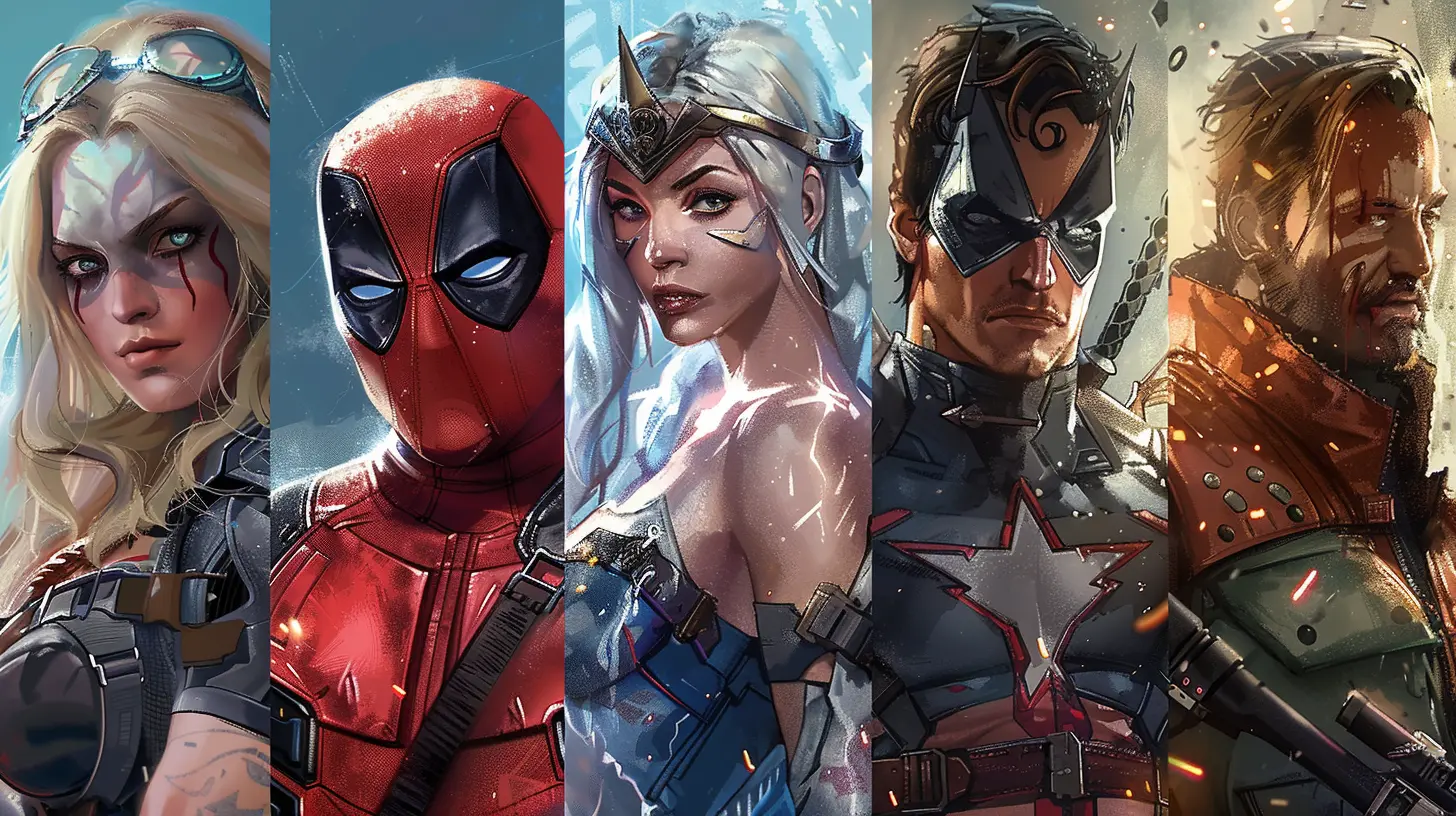
Why Are We So Drawn to Anti-Heroes?
Let’s face it—we’re all a little messy. That’s part of being human. And as games have evolved, they’ve started to reflect that messy reality. We're no longer satisfied with one-dimensional characters doing the right thing just because. We want depth. We want conflict. And anti-heroes bring all that and more.Think about it: anti-heroes mirror our own internal struggles. They wrestle with inner demons, navigate moral gray areas, and make decisions we might not agree with—but totally understand. There's something comforting in that raw honesty. It's like they're saying, “Hey, I’m messed up. But I’m trying.” And don't we all relate to that?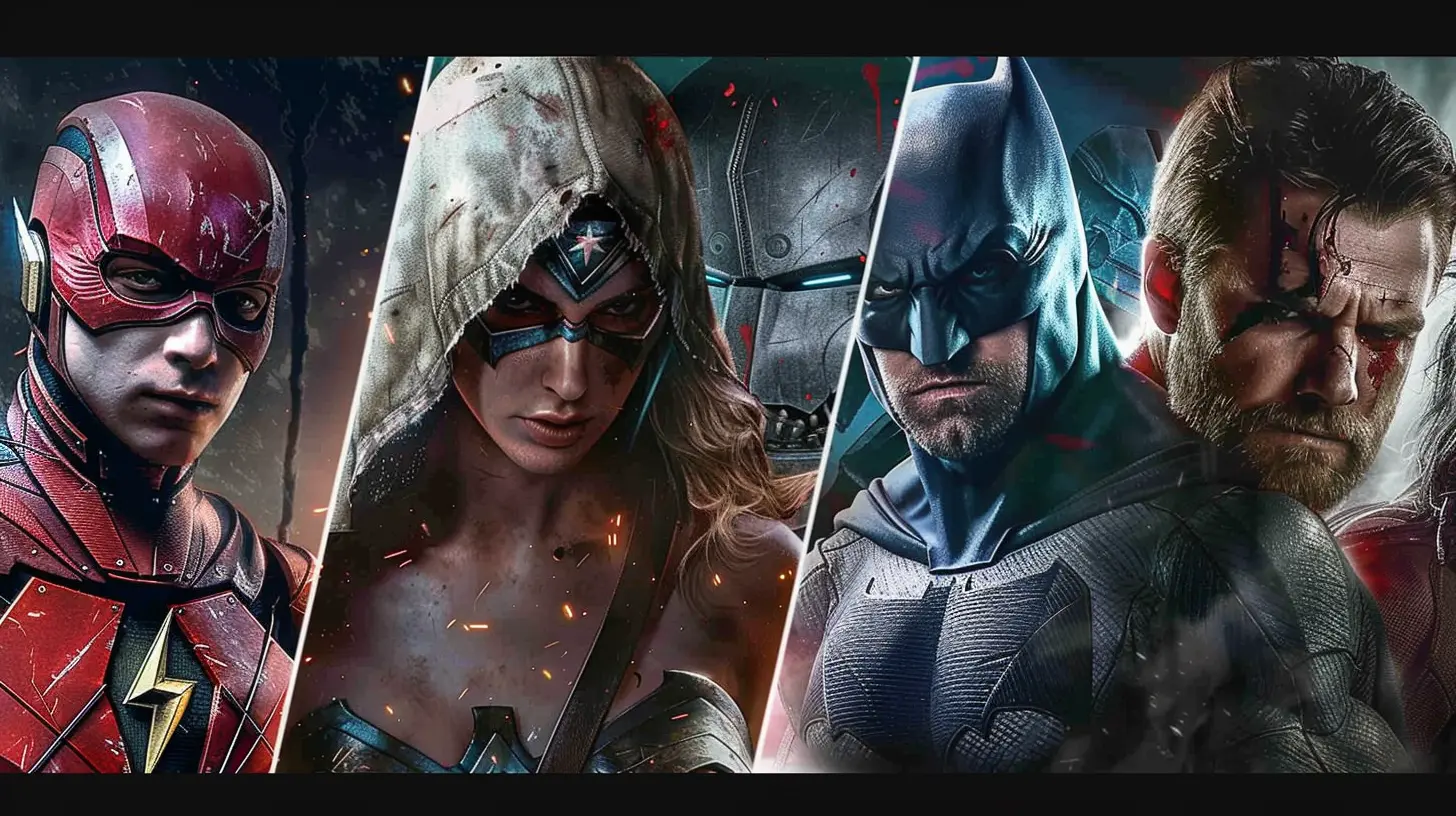
The Evolution of Gaming Storytelling
Back in the day, video games were more about gameplay mechanics than deep storytelling. You jumped over Goombas, saved the princess, and called it a day. But as technology advanced, so did game narratives.With voice acting, cinematic cutscenes, and open-world exploration, modern games became an art form. Developers started treating characters like real people, not just avatars with special abilities. And just like in books and movies, flawed characters began taking center stage.
Anti-heroes thrive in this new landscape. Why? Because their complexity adds layers to the story. You’re not just playing a game—you’re stepping into someone’s messed-up life and riding the emotional rollercoaster with them.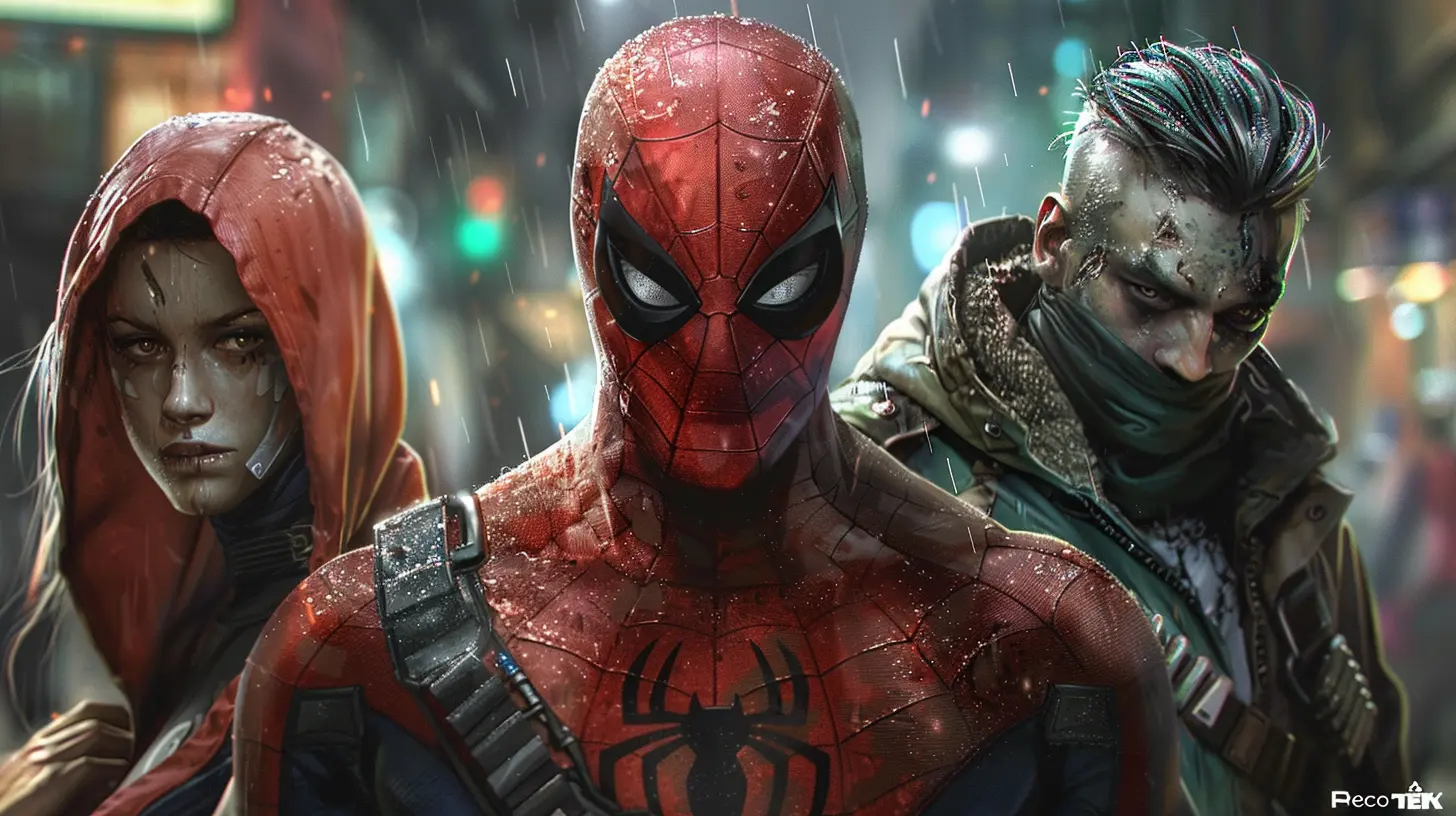
Iconic Anti-Heroes Who Changed the Game
Let’s talk about the heavy hitters—those game characters that didn’t just bend the moral compass, they snapped it in half. Here are a few game-changing anti-heroes we can’t forget.Kratos – God of War Series
Kratos is the ultimate rage machine. Fueled by revenge, this Spartan warrior literally slaughters his way through the Greek and Norse pantheons. But behind the bloodshed is a tragic backstory of loss and regret. In the 2018 reboot, we saw Kratos evolve into a more mature, reflective character trying to lead his son down a better path. It’s that growth that makes him compelling.Arthur Morgan – Red Dead Redemption 2
Arthur isn’t your typical outlaw. He’s a man torn between loyalty and morality. Throughout the story, we see him grapple with the life he’s chosen and question everything he once believed. He’s violent, sure, but he’s also compassionate, philosophical, and deeply human. By the end of the game, Arthur earns a kind of redemption that hits you right in the feels.Ellie – The Last of Us Part II
Ellie's journey is one of vengeance, pain, and ultimately, self-discovery. Her actions are often hard to watch—sometimes even unforgivable—but they’re understandable. That’s the thing about anti-heroes: they make you uncomfortable in the best way. They make you think. And that’s powerful storytelling.The Psychology Behind the Anti-Hero Appeal
So, what's really going on here? Why do we idolize characters who blur the line between right and wrong?Here’s a thought: anti-heroes give us a safe space to explore our darker impulses. In real life, we’re expected to follow rules and be good people. But in a video game, you get to walk on the wild side. It’s thrilling. Liberating, even.
Plus, let’s not forget the emotional depth. Anti-heroes often have traumatic pasts or massive inner conflicts that make them incredibly relatable. You’re not just controlling them—you’re feeling with them. And that emotional connection? It’s gold.
Anti-Heroes and Moral Choice Systems
Many modern games give players control over a character's morality. Whether it's choosing to spare a life, lie to a friend, or save a city, your decisions shape the protagonist—and the story.Here’s where anti-heroes shine.
Because they’re already toeing the moral line, your choices feel heavier. You’re not turning Captain America into a villain; you’re nudging a morally complex character down one path or another. It makes the gameplay feel more personal and impactful.
Games like Mass Effect, The Witcher 3, and Cyberpunk 2077 do this beautifully. You’re not just playing a character—you’re becoming them. And that kind of immersion? That’s what makes modern gaming so addictive.
Anti-Heroes Reflect the Real World
Let’s not ignore the elephant in the room. The world’s a messy place. Between social issues, personal challenges, and global uncertainty, life isn't black and white. So, it makes sense that we’re drawn to characters who live in the gray.Anti-heroes reflect the complexity of the human experience. They're not always noble. They screw up. They hurt people. But they evolve. And watching that evolution unfold on screen? That’s storytelling at its finest.
Are Anti-Heroes Here to Stay?
Short answer: Absolutely.Gamers have matured. We crave stories that challenge us, characters that surprise us, and narratives that stay with us long after the credits roll. Anti-heroes deliver all of that.
As long as developers keep pushing boundaries and players keep demanding more than cookie-cutter protagonists, anti-heroes will continue to rise. And honestly? Gaming’s better for it.
The Future of Gaming Narratives
Looking forward, we can expect more titles that lean into the gray areas of morality. Indie and AAA developers alike are experimenting with layered storytelling, often using anti-heroes to explore deeper philosophical themes.Imagine a game where your character isn’t defined by “good” or “evil,” but by a constantly evolving set of beliefs and experiences. That’s the direction we’re headed. And if that doesn’t get you excited, I don’t know what will.
Final Thoughts: Embracing the Imperfect
At the end of the day, anti-heroes show us that it’s okay to be imperfect. You don’t have to be a paragon of virtue to make a difference. Sometimes, the most powerful stories come from those who fall, rise again, and keep walking through the darkness toward the light.And that, my friend, is why anti-heroes aren’t just a trend—they’re a revolution in storytelling.
So next time you pick up the controller and find yourself in the shoes of a flawed, scarred, and morally complicated character… lean in. That’s where the magic happens.
all images in this post were generated using AI tools
Category:
Video Game CharactersAuthor:

Francesca West
Discussion
rate this article
2 comments
Tamara McTier
Great read! The rise of anti-heroes adds depth and complexity to modern gaming narratives, allowing players to explore moral ambiguity and make choices that challenge traditional heroic ideals.
February 25, 2026 at 3:37 AM
Sloan McPhail
Anti-heroes add depth and complexity, challenging traditional hero narratives in modern gaming.
September 4, 2025 at 3:01 AM

Francesca West
Absolutely! Anti-heroes enrich storytelling by blurring moral lines, allowing players to explore nuanced motivations and consequences.
